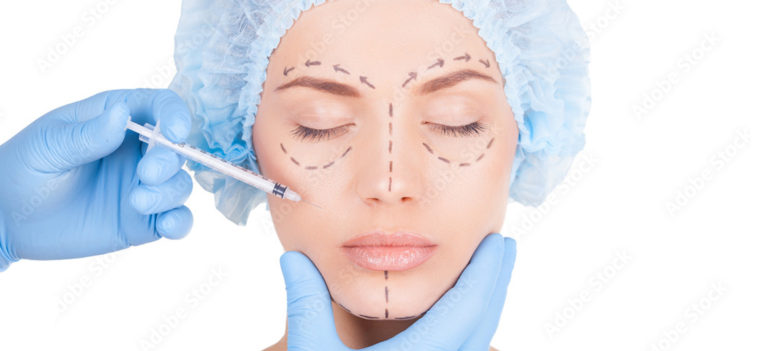Table of Contents
Botulinum toxin is produced by the anaerobic bacterium, Clostridium Botulinum. Yes, the same neurotoxin is known to cause deadly muscular and respiratory paralysis.
Botox is used therapeutically to paralyze muscles by inhibiting motor nerves from releasing acetylcholine, a neurotransmitter required for muscular contraction, into the synaptic space or cleft of the neuromuscular junction. The neuromuscular junction is a connecting space which lies between a nerve and a muscle in the body, and thus, generates action potentials for muscle movement. In simpler words, Botox blocks nerve signals from reaching your muscles, thereby blocking or weakening their movement.
Luckily, small quantities of Botulinum toxin are used as injectable concoctions, marketed today as Botox, in today’s cosmetic and aesthetic practices. While there might be a number of questions related to the use of Botox, one such query that is consistent with any skincare treatment is making sure how long Botox inections really last.
What are Botox Injections, and What are They Used for?
Known notoriously as the ‘Miracle Poison’, Botox is your ticket to maintaining your youth. There is no secret that Botox gave us a way to escape from reality by helping us defy ageing norms and get rid of wrinkles, fine lines, and unsightly creases as we continue our life’s journey.
The FDA approved Botox back in the late 1980s, primarily for squint or strabismus, but gradually, it rose to fame and expanded to other specialities.
Not only is Botox used in the cosmetic industry, it is also quite popular with neurologists as it can help manage spasms, migraines, jaw tension or locking, overactive or neurogenic bladder as well as decrease excessive sweating and drooling.
Today’s potion of youth comes in a needle; anyone with a fear of needles might be hesitant to the Botox injection initially, but it is too irresistible to give it a second thought.
But, does Botox come with an expiry date, or does it permanently halt the process of ageing?
How long does Botox Injections Last?
While the procedure hardly takes 15 minutes and is relatively painless, the longevity of the Botox injection is short-lived. Though the results of Botox vary from person to person, you might see a difference in your appearance as early as 12 – 48 hours or effectively, within a couple of weeks of its administration.
A botox injection lasts as short as 2-3 months and as long as 6 months, at most. However, with repeated shots and inhibition in muscle stimulation, you might see your wrinkles fading for longer periods of time.
In addition, its efficacy is determined by a number of factors such as your age, the depth of your wrinkles and lines, the condition your skin is in, as well as the technique and quantity of the Botox injection administered.
How Often Should You Go for Botox Injections?
Well, the million-dollar question arises.
In particular, the major concern is if you would have to get the Botox injectable medications from time to time, and if so, how often? Firstly, the answer to the former is yes, as its effects are only temporary and may last differently in each person.
Frequent administration of the neurotoxin can enable your skin to achieve resistance against Botox, as in most misuse of medications, such as antibiotics.
Broadly speaking, the answer to how often you should get Botox administered to your skin lies in the hands of a skilled Botox provider, but in actuality, you shouldn’t get your next Botox shot within three months. Ideally, you can get your next Botox after 3 or 6 months, for vivid and long-lasting results.
With frequent yet orderly use, though, Botox can maintain the softness and smoothness in your skin, helping your wrinkles to wane off for longer periods, thus giving you the supple skin you once had in your youth.
Tips on Aftercare
The first 24 hours of Botox injection are crucial in predicting the outcome of the medication. Ideally, your doctor should guide you in detail regarding any precautions and lifestyle adjustments you need to make following Botox administration.
But here are a few tips that you should get acquainted with if you are choosing to go for Botox in the near future.
Immediate Aftercare Management:
Aftercare management is sought in order to prevent other areas of skin from coming in contact with the areas that have been treated with Botox primarily.
- Avoid taking blood thinners or painkillers like NSAIDS at least 24 hours prior to getting your treatment. NSAIDS such as Ibuprofen and anticoagulants can bruise your skin easily.
- Ideally, you should stop smoking before, and definitively, after getting your Botox as smoking can end up thinning your skin, rendering the treatment ineffective.
- Similarly, try to curb your alcohol intake and stop drinking any for the next 24 hours. Yes, even beer.
- Don’t lie down for at least 3 – 4 hours after getting your Botox.
- Don’t touch or rub your face or go for a facial treatment within the next 24 hours after receiving the injection.
- If you are active, it is ideal to skip exercise for the first 24 hours of treatment.
- If you have a daytime appointment, and it is still sunny outside, do not forget to bring a hat so that you can wear it after getting your Botox. Be wary of applying any sunscreen or moisturizer on your face for the next 24 hours.
Lifestyle Adjustments
In order for Botox to maintain the suppleness of your skin for a long period of time, you need to nourish it with care so that it remains healthy and vibrant. For starters, drink
- Ask your doctor for a deterrent or medication that can help reduce your cravings for smoking.
- Minimize heat to the area and your risk of bruising your skin by avoiding going to overheated places such as saunas or tanning booths. It is ideal to also avoid going outdoors such as field games or the beach without a pair of sunglasses, a hat or a bandana, or perhaps, even an umbrella.
- Skincare is necessary for your skin’s rehab, but instead of getting off-the-counter face washes and cleansers, consult your dermatologist for proper guidance.
- You can even make your own homemade scrub with organically sourced ingredients such as a light scrub consisting of ground sugar and some purified coconut oil.
- Lightening and whitening products such as bleach are not recommended.
- Try to avoid sun exposure by gently applying sunscreen for protection (preferably SPF 30 or higher as your doctor suggests) before going out in the daytime.
- Serums containing hyaluronic acid or other collagens can help rewind ageing and serve as an adjuvant to protect your skin for longer.
What Happens If You Stop Using Botox?
Botox does not come with any unpleasant aftereffects, given that you had it done by a skilled aesthetic specialist. While your wrinkles might reappear once you stop using Botox, they will take a much slower course as compared to when they naturally appeared.
Conclusion
On average, a Botox injection costs around $408 as per the American Society of Plastic Surgeons (2019). If Botox is administered by an unskilled medical practitioner or non-medical personnel, you might face complications consistent with high doses of the neurotoxin.
You can get Botox administered by a reputed dermatologist, provided you have explained the risks and guidelines beforehand. As you can go for another shot of Botox after 3 – 6 months, it is ideal to make the most of your skin by nourishing and caring for it in any possible, healthy way.
– Disclaimer –
This blog is for informational & educational purposes only and does not intend to substitute any professional medical advice or consultation.
For any symptoms or medical advice, please consult with your physician, Or Book an appointment with our certified aestheticians at Syra Aesthetics.

-
About The Author
Dr. Syra Hanif M.D.Board Certified Primary Care Physician
Dr. Hanif is the Director of Aesthetic Medicine. She is a board-certified physician in Aesthetic Medicine who specializes in using non-surgical alternatives in order to enhance one's appearance through Botox and fillers.
Read More


